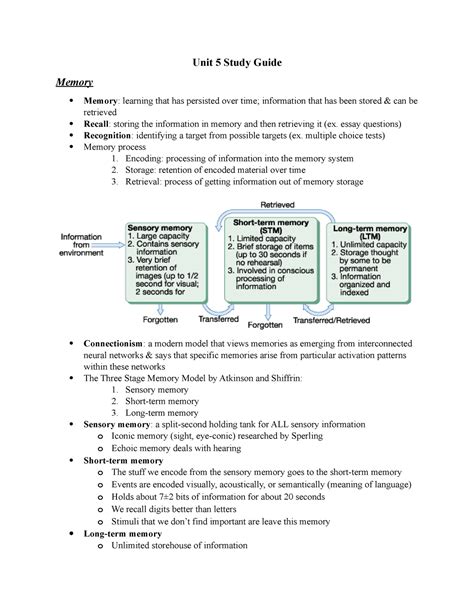Introduction

In the realm of learning and memory, spaced intervals reign supreme. This highly effective technique has been proven to enhance the retention and recall of information, making it an indispensable tool for students preparing for the Advanced Placement (AP) Psychology exam. This article delves into the science behind spaced intervals, providing practical strategies and tips to optimize your learning process.
What are Spaced Intervals?
Spaced intervals refer to the practice of spreading out study sessions over time instead of cramming everything in at once. By introducing deliberate gaps between learning sessions, the brain is forced to actively retrieve information from memory, strengthening connections and improving long-term retention.
Research-Backed Benefits of Spaced Intervals
Over a century of research supports the benefits of spaced intervals. Studies have consistently shown that:
- Improved Retention: Spaced intervals increase the likelihood of remembering information over extended periods.
- Enhanced Recall: Retrieval practice during spaced intervals strengthens memory retrieval mechanisms.
- Reduced Interference: Spacing out study sessions reduces interference between concepts and promotes selective retrieval.
- Cognitive Flexibility: Spaced intervals foster cognitive flexibility by forcing the brain to switch between different contexts.
How to Use Spaced Intervals in AP Psychology
Applying spaced intervals to AP Psychology preparation requires strategic planning and consistency. Here are some effective methods:
- Create a Study Schedule: Establish a realistic study schedule that incorporates regular intervals. For instance, review material every 24 hours, 3 days, and 7 days.
- Break Down Concepts: Divide complex concepts into manageable chunks. Focus on one chunk during each study session.
- Use Active Recall Techniques: Engage in active recall by testing yourself on the material regularly using flashcards, practice questions, or written summaries.
- Take Advantage of Technology: Utilize spaced interval software or apps that automatically schedule review sessions.
Tips and Tricks for Maximizing Spaced Intervals
- Start Early: Begin using spaced intervals from the start of your study process to reap the long-term benefits.
- Be Consistent: Adhere to your study schedule and avoid skipping intervals.
- Incorporate Active Recall: Make active recall an integral part of your spaced intervals to strengthen retrieval pathways.
- Test Yourself Regularly: Take practice tests or quizzes to assess your understanding and identify areas for improvement.
- Seek Feedback: Ask teachers or classmates for feedback on your understanding of concepts.
Common Mistakes to Avoid
- Cramming: Resist the temptation to cram everything at once. Spaced intervals rely on consistent review over time.
- Passive Reading: Avoid passively reading notes or textbooks. Engage in active learning by highlighting, summarizing, or creating mental maps.
- Lack of Regularity: Do not abandon spaced intervals prematurely. Consistency is crucial for maximizing benefits.
- Ignoring Retrieval: Neglecting retrieval practice during spaced intervals can hinder memory formation.
- Over-Spacing: While spacing is important, excessive spacing can lead to forgetting. Use research-based intervals.
Applications Beyond AP Psychology
The power of spaced intervals extends beyond AP Psychology preparation. It can be applied to a wide range of learning situations, such as:
- Language Acquisition: Enhance vocabulary retention and improve speaking fluency.
- Professional Development: Master new skills and knowledge for career advancement.
- Science and Math Education: Strengthen understanding of complex concepts and solve problems effectively.
- Personal Enrichment: Expand your knowledge base in history, literature, or any other area of interest.
Conclusion
Spaced intervals are a scientifically proven technique that revolutionizes the way we learn and remember information. By embracing spaced intervals in AP Psychology preparation, you can dramatically enhance your retention, recall, and overall performance on the exam. Remember, consistency, active recall, and strategic planning are the keys to unlocking the full potential of spaced intervals.
